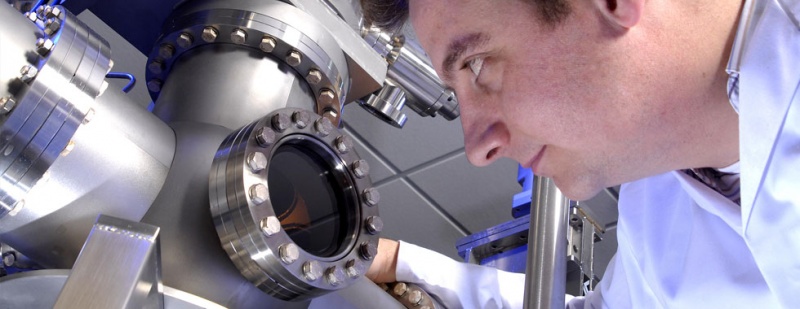Toyota’s dedicated research organization, Toyota Research Institute (TRI), is investing $35 million into collaborative research efforts with a number of university and corporate partners focused on materials science. TRI believes progress in artificial intelligence can help further efforts in this key area of basic research, specifically around three key areas, including fuel cell catalysts, batteries and functional polymers designed for energy storage.
The key through line here is that TRI’s interest in materials science ties directly to exploration of making progress in the realm of energy use. This has long been a key roadblock when its comes to various areas of technology, and that’s true also of TRI’s other areas of research interest, which include robotics (and domestic robotics specifically) as well as autonomous vehicles.
But TRI’s Chief Science Officer Eric Krotkov told me in an interview that while it’s eager to begin this work and get excited about the potential of its new partnerships, this is likely the longest bet that TRI is making in terms of its various areas of focus.
“What we’re doing now with our research partners and internally at TRI is not going to go into the Mirai next year,” Krotkov said. “This is a long-term project addressing some very fundamental scientific questions and we’re going to be publishing articles in scientific journals and trying to reproduce some of the results that the various partners achieve, and just applying the scientific method. This is a long-term project.”
TRI’s entire purpose is to apply the potential of AI to difficult problems, however, and it’s not after quick fixes. Still, it hopes that use of AI in this particular realm can help create efficiencies in certain areas that will expedite parts of the process, which generally occur on very long time scales, including a lot of fundamental experimentation, vetting and attempts to replicate experimental results. I asked how AI might help with this, and whether simulation of experiments was a key component.
“Simulation in general is a great tool for doing science and engineering,” explained Dr. Brian Storey, an Olin College of Engineering professor and TRI team member. “There are fundamental reasons that it’s very, very difficult to do it in some of these problems. You can’t make a simulator for an entire battery. Can you do better than we currently do? We think so. Simulation is important, but it can’t be the whole thing. It’s really the integration, but also new sources of experimental data but really bringing these things together is the critical part.”

Along with research partners including Stanford, MIT, the University of Michigan, the University at Buffalo, the University of Connecticut and UK materials science company Ilika (which also has a longstanding working relationship with Toyota), TRI hopes to marry material modelling on computers with a wider range of available data from past experiments. It’l weave these together with machine learning and artificial intelligence techniques for sifting and combining the available information, with the end goal of helping design and develop new materials that have potential in the field of energy storage and power production it’s most interested in.
What Krotkov says is most interesting about TRI’s specific approach to these partnerships, and what sets this apart from other similar private funding efforts directed at academic institutions, is that this isn’t a competition designed to narrow the field over time. Most grant-style programs offered by companies like Toyota start with a fairly wide group of participants, but set in advance the expectation that this group will decrease over time, with “winners” emerging over “losers” as measured by progress.
TRI purposefully avoided this kind of construction with this program, hoping to foster more cross-collaboration among peers and different groups working on the same problem. Already, Krotkov says he’s seen enthusiasm and encouraging signs among their research partners that this is paying off, and avoiding the kind of information and results-hoarding that can arise as a natural outcome of the model where everyone knows they’re directly competing for resources down the road.
For TRI, this is an investment that will hopefully produce results in a relatively distant future, which is why structuring its partnerships like this also makes sense: true collaboration isn’t achieved over the span of a semester or an academic school year. Toyota’s AI research wing once again stands out as an example of long-term planning in an industry that loves short-term marketing wins, which is a marked distinction in automotive tech today.































Comment